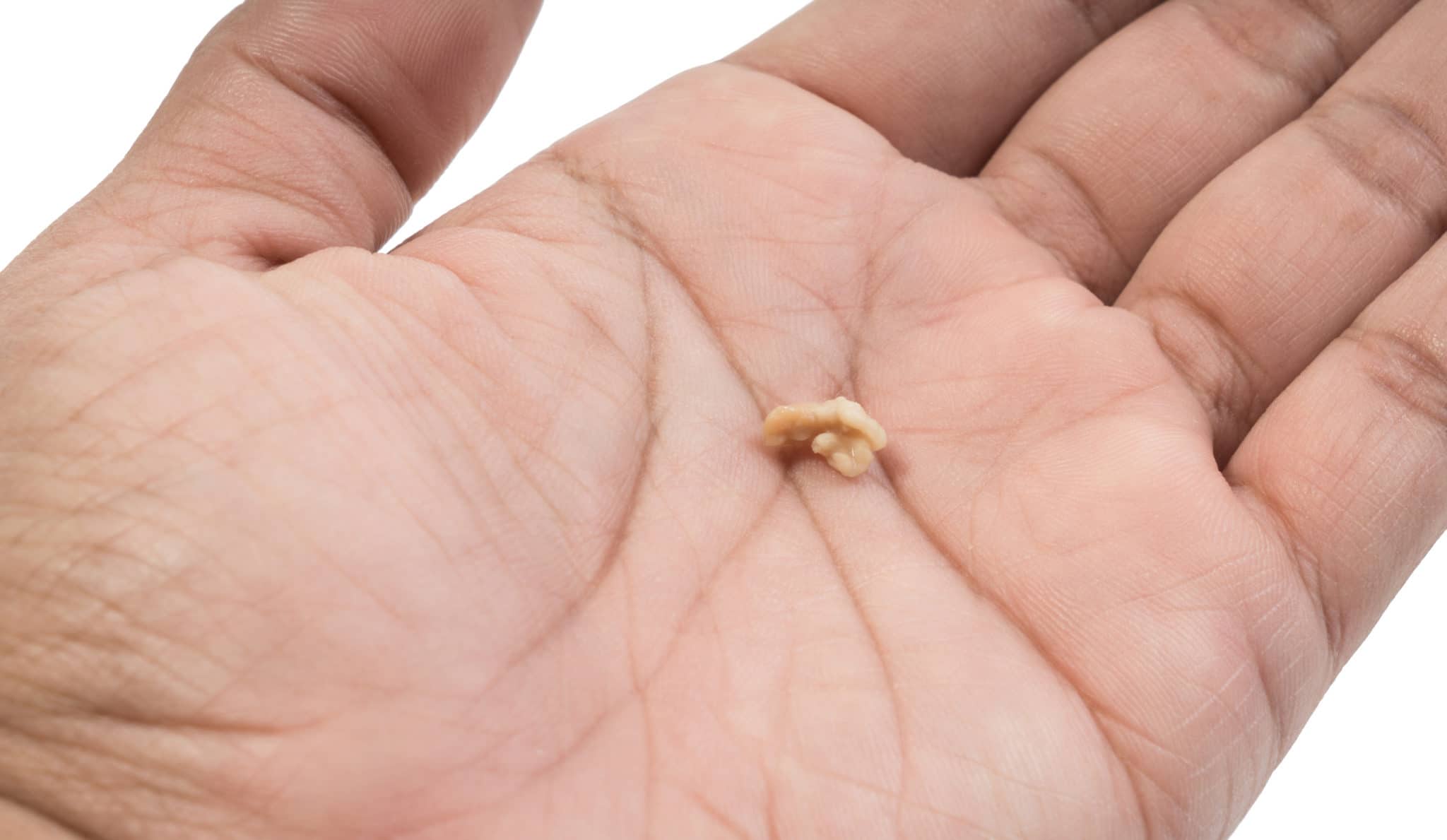The tonsils are two lymph nodes located on either side of the back of your throat. They are part of your body’s defense mechanism against infection, but sometimes can be susceptible to infection themselves. Another tonsil-related ailment is tonsil stones. One study published in ISRN Dentistry found that tonsil stones affect around eight percent of adults.
What Are Tonsil Stones?
Tonsil stones occur when food, mucus or dead skin cells become trapped in the crevices of the tonsils. Once this happens, they grow bacteria and calcify, forming hard balls. Their makeup is similar to plaque that forms on our teeth. They are usually light yellow or white in color, but may occur too deep to be seen at all.
Who Can Get Tonsil Stones?
While there is no clear reason why some people develop tonsil stones and others don’t, data shows they are slightly more common in teenagers. Some physicians speculate that people with deeper crevices in their tonsils are more susceptible.
Many people with tonsil stones exhibit no symptoms. If they aren’t bothering you, there is no need to seek treatment. Some people, however, experience redness, irritation, bad breath, infection, sore throat and painful swallowing. Rarely, pain or pressure in the ears is also reported.
Treating Tonsil Stones
Tonsil stones can be removed at home in many cases. You can remove them by gently pressing the back of your toothbrush against them. Make sure you push them forward to prevent swallowing them or choking on them. Vigorous gargling can also sometimes dislodge the stones.
If you can’t remove the tonsil stones yourself and they are causing discomfort, schedule an appointment with your doctor.
If you frequently get tonsil stones, your doctor may suggest a tonsillectomy, which is the surgical removal of your tonsils.
Preventing Tonsil Stones
The best thing you can do to prevent tonsil stones is to have excellent oral hygiene. Brush your teeth twice per day and floss at least once per day. Rinse with an alcohol-free mouthwash daily as well. Schedule a dental cleaning twice a year, and be sure to schedule any routine procedures your dentist recommends promptly.
For more information about tonsil stones or for an appointment to have them removed, call Willamette ENT today.
Learn More About ENT Health
- Understanding Your Child’s Ear Infection
- Symptoms of a Sinus Infection
- What Your Earwax Says About Your Health
“I came to be under Dr. Donovan's care during a medical emergency at the hospital. The care I received that day and in every interaction after, at Willamette ENT has been prompt, professional and very thorough. I feel very well cared for.”